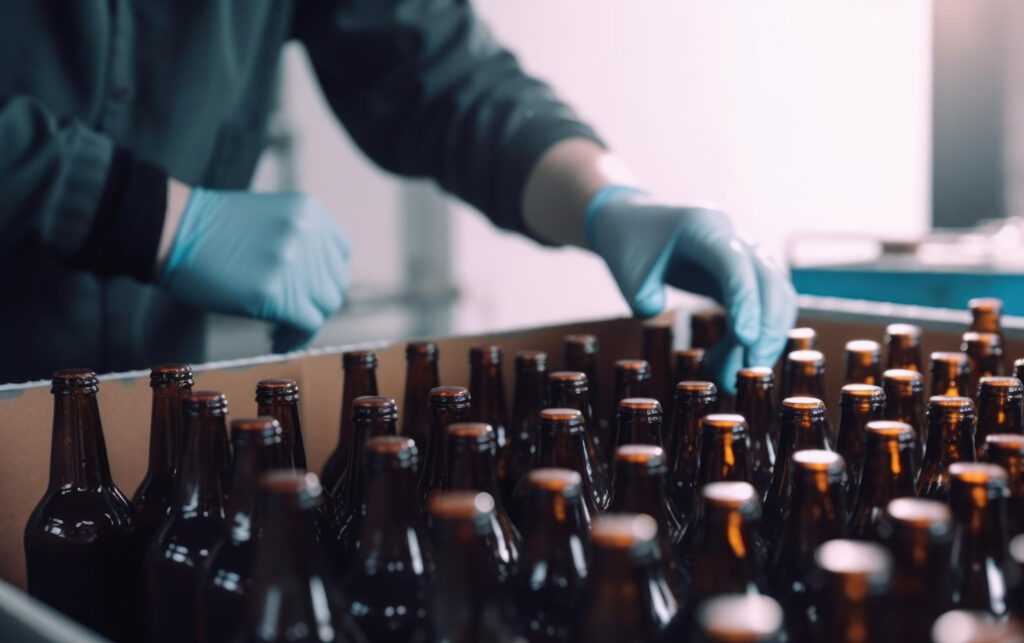Unsustainable Investments: Examining the Impacts of Beer and Liquor, Oil, and Gambling Industries
Unsustainable investments are financial endeavours that generate short-term profits while disregarding long-term consequences for the environment, society, and economic stability. This article explores the sustainability concerns of three industries: beer and liquor, oil, and gambling. Although vastly different, these industries share common issues related to their impact on the environment, public health, and societal well-being.
Beer and Liquor Industry
The beer and liquor industry is a global behemoth, contributing significantly to the world’s economy. However, it faces sustainability challenges that often go unnoticed by consumers.

Environmental Impact:
- Water Usage: Brewing beer and distilling spirits require substantial water resources. The over-extraction of water from local sources can deplete aquifers and harm ecosystems, particularly in regions already experiencing water stress.
- Packaging Waste: The industry generates massive amounts of packaging waste, including glass bottles and plastic packaging. Proper recycling and waste management are crucial to mitigate this issue.
- Carbon Footprint: The production and transportation of beer and liquor contribute to greenhouse gas emissions. Companies are increasingly adopting sustainable practices to reduce their carbon footprint.
Social and Health Issues:
- Alcohol Abuse: Excessive alcohol consumption can lead to addiction, accidents, and many health problems. The industry faces criticism for promoting alcoholic beverages irresponsibly and for marketing practices that target vulnerable populations.
- Social Costs: Alcohol-related social issues, such as domestic violence, crime, and absenteeism, have significant societal costs. Governments and communities often bear these costs.
Ethical Concerns:
- Marketing to Minors: The industry has been criticized for marketing strategies that appeal to young consumers, potentially encouraging underage drinking.
- Corporate Influence: Some major players in the beer and liquor industry have faced allegations of lobbying against public health policies to reduce alcohol-related harm.
Oil Industry
The oil industry, a cornerstone of the global economy, has faced growing scrutiny due to its environmental and social impacts.
Environmental Impact:
- Climate Change: The extraction and burning of fossil fuels, including oil, are a primary driver of climate change. Carbon dioxide emissions from the oil industry contribute significantly to global warming.
- Oil Spills: Catastrophic oil spills, such as the Deepwater Horizon spill 2010, have devastating consequences for marine ecosystems and coastal communities.
- Habitat Destruction: Oil exploration and extraction can destroy habitat, disrupt ecosystems, and endanger wildlife.
Social and Health Issues:
- Health Impacts: The extraction and consumption of oil contribute to air pollution, which has adverse health effects on nearby communities. This is especially concerning in regions with high oil production.
- Displacement: Oil exploration often results in the displacement of indigenous and local communities, causing social and economic disruption.
Ethical Concerns:
- Corruption: Some oil-producing countries experience corruption and resource mismanagement, leading to economic inequality and political instability.
- Human Rights: Human rights abuses, including labour exploitation and violations of indigenous rights, have been associated with the oil industry in certain regions.
Gambling Industry
The gambling industry, casino online, online betting, and lotteries, has grown substantially but also faces sustainability challenges.
Social Impact:
- Addiction: Gambling addiction is a pervasive issue with severe consequences for individuals and their families. The industry has been criticized for not doing enough to address this problem.
- Financial Strain: Problem gambling often leads to financial hardship, debt, and even bankruptcy. These financial struggles can strain social support systems.
Economic Concerns:
- Economic Dependency: Some regions heavily rely on gambling revenue, creating economic vulnerability when the industry faces challenges or regulatory changes.
- Regressive Taxation: Lotteries, often promoted as sources of public revenue, can disproportionately affect lower-income individuals, leading to regressive taxation.
Ethical and Legal Issues:
- Marketing Practices: The industry has faced allegations of predatory marketing tactics, particularly in online gambling, which can encourage risky behaviour.
- Regulatory Challenges: Balancing the need for regulation to protect consumers and vulnerable populations while allowing for legitimate forms of gambling is a complex challenge.
Sustainability Initiatives and Solutions
Recognizing the sustainability concerns associated with these industries, various stakeholders have taken steps to mitigate their negative impacts and promote more responsible practices.
1. Beer and Liquor Industry:
Sustainable Brewing: Many breweries and distilleries have adopted sustainable practices, such as water recycling, energy efficiency, and eco-friendly packaging.
Responsible Marketing: Some companies have committed to responsible marketing and have advocated for moderation in alcohol consumption.
Support for Addiction Services: The industry has supported initiatives to combat alcohol addiction, including funding treatment and prevention programs.
2. Oil Industry:
Transition to Renewable Energy: Some oil companies are investing in renewable energy sources and reducing their carbon emissions as part of their commitment to combat climate change.
Environmental Regulations: Stricter environmental regulations and enforcement can help minimize the industry’s negative impacts.
Community Engagement: Engaging with local communities affected by oil operations can lead to more responsible practices and better outcomes for residents.
3. Gambling Industry:
Responsible Gambling Programs: The gambling industry has developed responsible gambling programs to help identify and assist individuals with gambling problems.
Regulation and Oversight: Government regulatory bodies play a crucial role in ensuring that gambling practices are fair, transparent, and protective of consumers.
Support for Problem Gamblers: Funding and support for addiction treatment and prevention programs are essential to address gambling addiction’s social and health impacts.
Conclusion
Unsustainable investments in industries like beer and liquor, oil, and gambling have far-reaching consequences, from environmental degradation and public health issues to social and ethical concerns. Recognizing these challenges, stakeholders, including businesses, governments, and civil society, have a role to play in promoting sustainability and responsible practices within these industries. By addressing these issues head-on and fostering more responsible practices, we can strive for a future where economic growth aligns with environmental stewardship and the well-being of societies worldwide.
